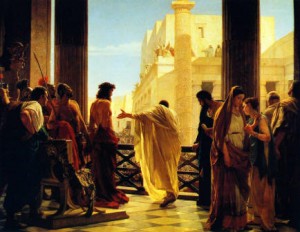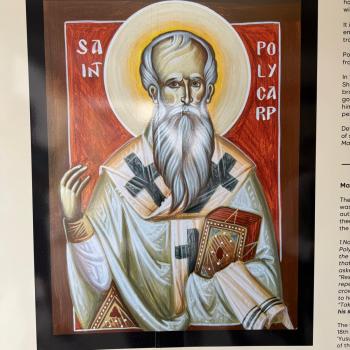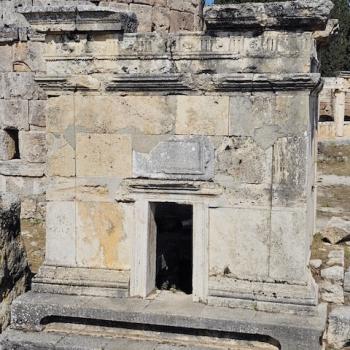So far as we can tell, the Jesus tradition never went dormant. By this I mean when we conceive of the composing of the Gospels we should not conceive of Gospel writers desperately searching for long lost documents so they could write the story of Jesus. So far as we can tell the tradition of words and deeds of Jesus was living, being used, being shared, being spread throughout the period A.D. 30-70 and beyond. It was a living oral tradition.
Thus, when we come to Chapter 8 of McIver’s book and we hear things like while McIver agrees that it is very unlikely that the sayings and narratives about Jesus were not continuously discussed in the relevant period. This being likely, when we hear “it is likely that up to 50% of the events of Jesus’ life that were witnessed by those still alive when the Gospels could have survived in the memory of those eyewitnesses over the thirty to sixty years that had intervened since the crucifixion-resurrection.” In other words, even in a worst case scenario where it is supposed nothing was written down before Mark began to compose his Gospel, still a huge amount of data about Jesus’ life would have been available courtesy of original disciples with normal memory capacities. As John 21.25 in fact makes clear, the Gospels are just the tip of the iceberg. There was a lot which was remembered that did not make its way into the Gospels we have. Again we must not conceive of Gospel writers desperately groping around for little snippets of authentic Jesus tradition. There problem was editing things down to size, not boiling things up, as they had access to both oral and written traditions at least after Mark wrote his Gospel.
Here is where different persons would have had different levels of personal investment and memory of different Jesus events. For example, Peter would have had more emotional investment in his own call, but less in that of Matthew, whereas the reverse would be true of Matthew. When there was a personal stake in the matter, and one was not just an observer of what happen, personal memory, even flashbulb memory (see previous posts) would likely be formed.
Here is where we pause for a moment and think again about what Luke is actually telling us in Lk. 1.1-4. First of all he refers to various persons who have sought to give an account of things that have happened among us. Is he referring to oral or written accounts? The way that Luke talks about ‘setting down an orderly account’ strongly suggests something written. Luke knows these accounts. They are several, but he has decided to create his own account. Luke says that these accounts are based on what the original eyewitnesses and preachers had handed on to the Christian communities, including Luke’s. Luke then talks about his ‘investigation’ of things over a considerable period of time. It is write to take this to mean that he went and consulted various eyewitnesses and preachers himself, presumably to confirm or disconfirm the earlier written reports. Among other things, this means that when Luke wrote, likely in the 70s or 80s, there were still eyewitnesses to consult, and furthermore it means that Luke knows that written records from several sources were available but though he not merely knew about them but rather knew their content, he was going to do his own truth search about ‘these things’. In this case, the eyewitnesses would be used to confirm, clarify confute what Luke had previously learned. Not everything relied on the long term memory of the original eyewitnesses for Luke. He had written records before him as well.
What this means is that McIver’s skepticism about written records in the period before the writing at least of Mark, is frankly too skeptical as we saw in our earlier review on this blog of Alan Millard’s book. This skepticism is odd, since McIver admits there were people like Matthew the tax collector who would have had writing skills. Critiquing Millard’s views on pp. 150-51 McIver suggests that Matthew would have only used his writing skills on specific occasions. He argues that we have no lecture notes evidence from Palestine in our period, contra to what Millard envisions. Here is where we say that current absence of evidence is not the same as evidence of absence, especially when we realize that papyrus only normally survived the ages in very arid climates, not in Galilee. The question to be asked is whether disciples of Jewish teachers might well have taken some notes, as students. This is not implausible. McIver then complains that even if there were lecture notes tucked away in Galilee, one has to ask how they got to the centers where the Gospels were written. But as I have shown in my Matthew commentary, there is good reason to entertain the possibility that Matthew’s Gospel was composed in Capernaum in Galilee, where we have evidence of perhaps the earliest Christian worship center in the house of Peter’s mother in law. Thus I must reject the conclusion that it was ‘highly unlikely’ (p. 151), there were any written records of Jesus’ words and deeds early on. One more point is worth making. Once Jesus became a public figure, you will note that he regularly had encounters with inquisitors, many of whom were not friendly. Indeed, many of them had scribes with them. There may well have been written records of Jesus’ words and deeds in Jerusalem, filed by such scribes, and later used against Jesus during the last week of his life, but we cannot be sure about this.
One of the further, repeated, assumptions of McIver is that what was remembered and later recorded depended on the later needs and interests of the Christian communities decades later. While I think it is right to suggest there would be a positive correlation between ongoing interests and memories of things, one has to be struck with how much of the Synoptic tradition examines issues that do not seem to have been issues in the early church, whether one looks at the NT epistles or the book of Acts.
By this I mean, where is the evidence of a big debate in the church about things like Corban, or like plucking grain on the sabbath, or like Levirate marriage?? I know of no such evidence. This suggests that a good deal of the Synoptic tradition does not in fact reflect later interests and urgencies. Maybe the earliest Christians really were interested in just what Jesus said and did, and not just in the bits that were still useful to them. While I agree that the Evangelists did select materials at times according to their communities needs and their own theological interests, it would be wrong to see their handling of the Gospel tradition as purely self-serving.
In the end, even if one agrees with McIver, he is still able to show that it is highly likely we have considerable personal memory material in the Synoptics which is historically accurate and substantive. He also shows that eyewitness testimony has general reliability especially in getting the gist of things right. Thus he is right to conclude that the eyewitnesses reports had a first order faithfulness to them.













